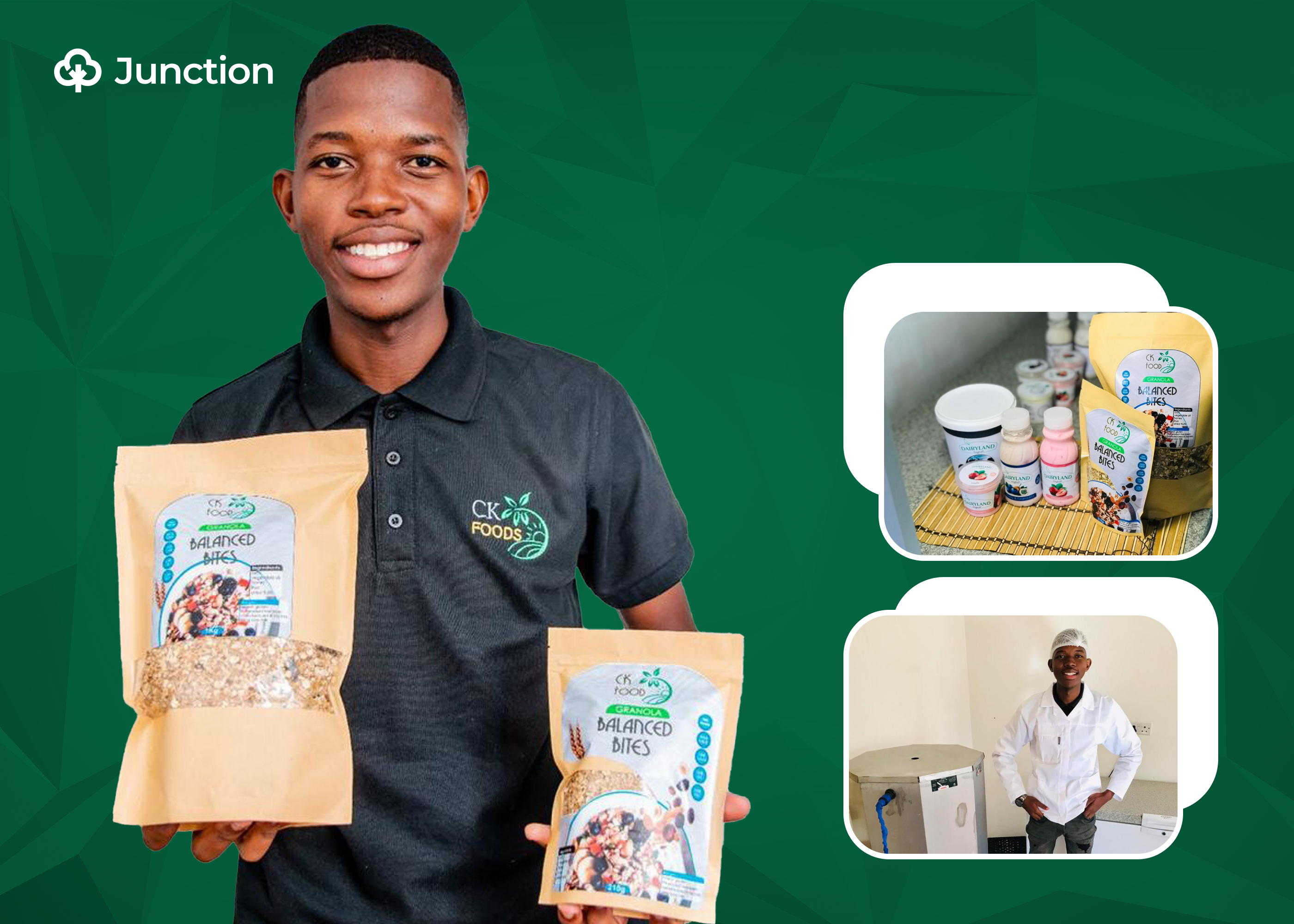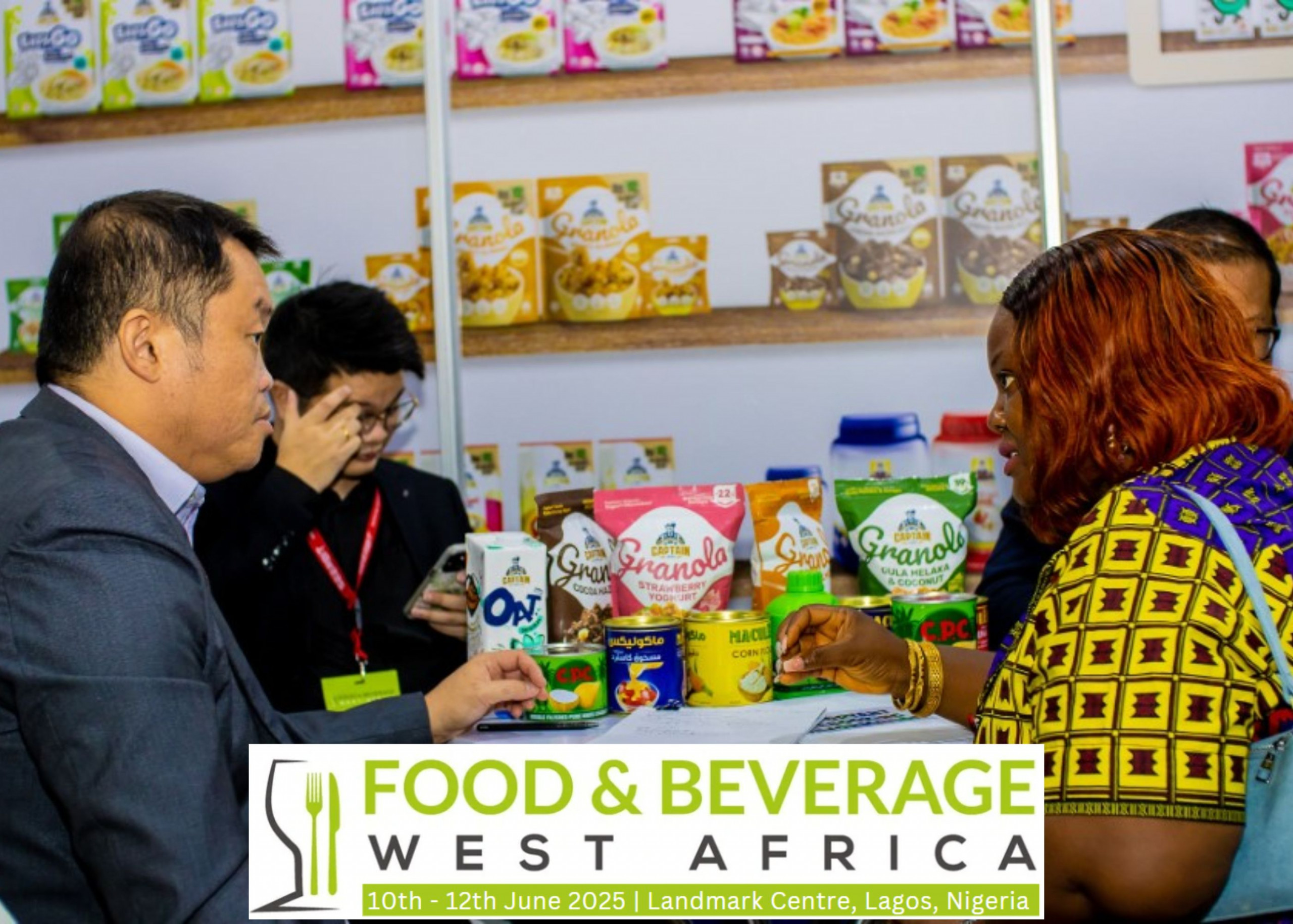Despite the continent’s potential for self-sufficiency, food security remains a major challenge in Africa. Botswana, for example, imports 86 million litres of milk annually, while local production accounts for just 7 million litres.
A report mentions that there are more than a million cattle heads in the country, which is about 2 persons per cattle when compared to its population. Yet, it relies heavily on imports, raising concerns about economic sustainability and food sovereignty.
Amid these challenges, young entrepreneurs like Kago Christopher Dichabe are stepping up to change the game. As the Managing Director of CK Foods Enterprise, Kago is proving that local innovation can reshape Botswana’s food industry. His story is a narrative that resonates strongly with Nigerian entrepreneurs facing similar challenges.
From stock manager to food innovator
Kago didn’t start in food processing. His career began as a Stock Control Manager at Choppies, one of Botswana’s biggest retail chains. However, his entrepreneurial spirit led him into poultry farming. His first attempt to run a business unfortunately ended badly. Climate challenges wiped out his stock, forcing him to shut down.
He got a job again to keep the lights on while working on a new idea; creating a locally made yoghurt that could compete with foreign brands.
During his time at Choppies, he had noticed a glaring gap in Botswana’s food industry. Store shelves were packed with imported products and local brands were almost nonexistent. That realisation sparked a new mission. For two years, he poured himself into researching dairy production. Then, in June 2022, armed with knowledge, savings, and determination, he quit his job and launched CK Foods Enterprise.
The challenges of building a food business
Starting a food processing business in Botswana was far from easy. Kago faced three major hurdles:
- Lack of Industry Information – Botswana’s food sector lacked structured data and resources for startups. Finding reliable information on dairy production was a frustrating process.
- Limited Local Resources – Despite Botswana’s cattle wealth, dairy ingredients were scarce. He had to source key raw materials from South Africa and Zimbabwe, which was both costly and inefficient.
- Consumer Skepticism – Many people doubted that a local entrepreneur could produce quality yoghurt. Some even assumed he was repackaging store-bought brands.
These challenges are not unique to Botswana. Nigeria, despite its agricultural potential, faces similar issues. In 2022, Nigeria imported ₦1.9 trillion worth of food products, accounting for 7.29% of the country’s total imports. Entrepreneurs in both countries struggle with infrastructure, policy gaps, and consumer trust.
Breaking barriers through the CK Foods approach
Despite the roadblocks, CK Foods kept pushing forward. The company developed a preservative-free yoghurt line, introducing flavours like blueberry, cookies & cream, strawberry, cinnamon, and plain in 250 g, 500 g, and 1 kg sizes. Instead of relying on artificial thickeners, his use of tapioca starch (sago pearls), a gluten-free thickening agent, set CK Foods apart in the market.
Beyond yoghurt, Kago expanded into granola production, focusing on minimising genetically modified ingredients. Though still in the market-testing phase, this product is part of his larger vision: offering healthier, locally made alternatives to imported goods.
@ck_foods06 You wanna know what I sell? #yogurtandgranola #breakfast #mindfulmonday #dairyland #ckfoods #viral #makemefamous #pushabw #localislekker ♬ I sell this – smallbizcassie
In targeting B2B customers, Kago formed a supply collaboration chain with other enterprises like hotels and fitness clubs to boost sales as well as relying heavily on social media advertising and customer feedback to improve the quality of its products.
Leveraging training and government support
A key factor in CK Foods’ success is entrepreneurial education and funding support. Kago participated in Tokafala, a six-month business training program, where he won first prize in the Tokafala – Stanbic Business Pitch Competition. The prize money allowed him to scale production and invest in better equipment.
Additionally, Botswana’s Youth Development Fund (YDF) provided funding that helped his business grow. These opportunities, combined with strategic networking, played a vital role in the company’s expansion.
How the government can support food entrepreneurs
Kago believes government policies need to evolve to help local food entrepreneurs thrive. His suggestions:
- Invest in Research & Development – Botswana has thousands of food scientists, yet little of their research makes it to market. Universities and institutions should actively support startups with product development.
- Encourage Local Sourcing – With 1.1 million cattle, Botswana has the potential to produce dairy ingredients locally, reducing reliance on imports.
- Create Incubation Hubs – Government-backed processing hubs could help young entrepreneurs access affordable production facilities.
A vision for the future
Over the next five years, CK Foods plans to:
- Expand distribution across Botswana, Zimbabwe, and Namibia.
- Establish a large-scale processing facility in Gaborone.
- Create at least 300 jobs.
Lessons for African entrepreneurs
Kago’s advice for upcoming entrepreneurs? Just start. Waiting for perfect conditions leads to inaction. He emphasises the power of networking, noting that the right connections can open doors you never imagined.
His journey isn’t just a Botswana success story, it’s a lesson for young African entrepreneurs, especially in countries like Nigeria, where agribusiness holds massive potential.
The food processing industry in Africa is ripe with opportunities, but success demands innovation, risk-taking, and perseverance. CK Foods is proof that local entrepreneurs can break the cycle of food import dependency, one product at a time.



